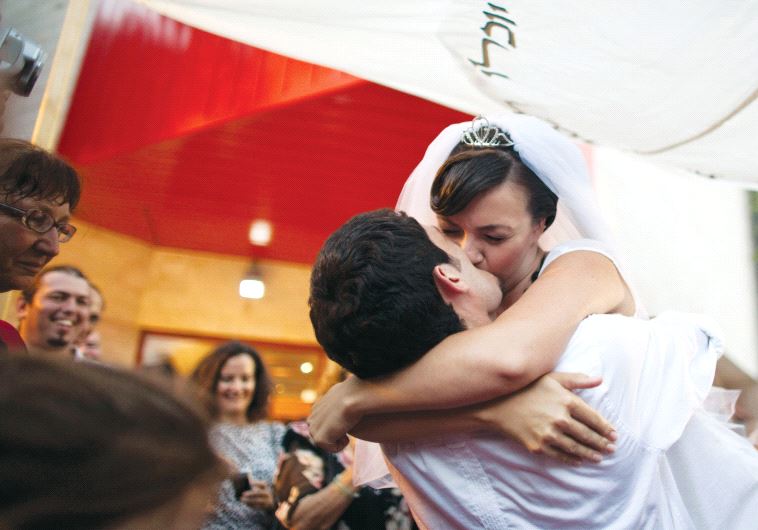Civil marriage in Eilat to be proposed in forthcoming legislation
The bill would allow civil marriages to place in Eilat, but is facing opposition from all sides.
 A bride and groom kiss under the chuppah at their wedding(photo credit: NIR ELIAS / REUTERS)Updated:
A bride and groom kiss under the chuppah at their wedding(photo credit: NIR ELIAS / REUTERS)Updated: